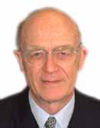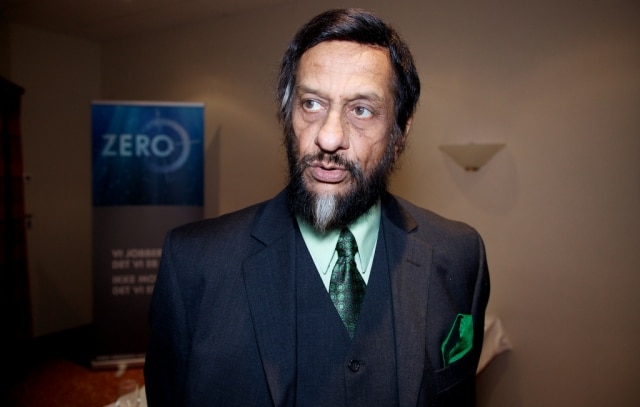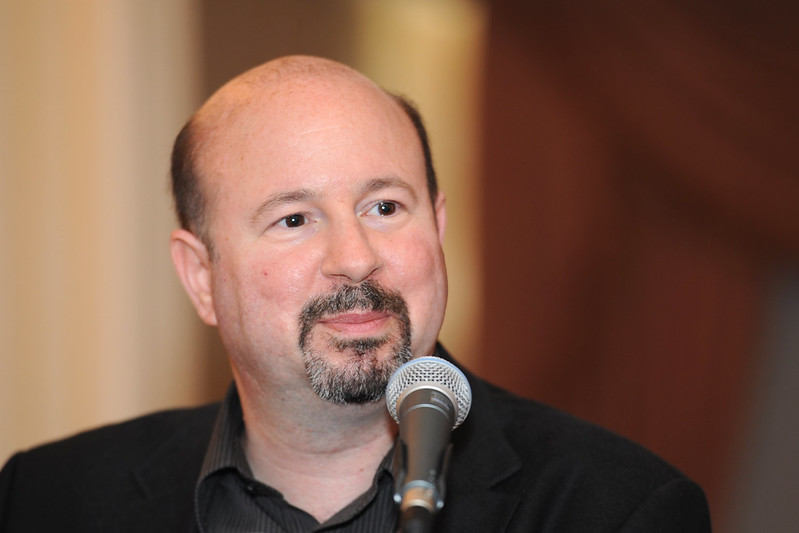In this DeSmog UK epic history post we meet David Henderson, who accidentally became one of the IPCC’s fiercest opponents.
David Henderson is a fellow of the Institute of Economic Affairs (IEA) where he is valued as an eloquent and modest advocate of radical free market capitalism. But, his engagement with climate scepticism “came about in an entirely unplanned and fortuitous way.”
The former head of the economic division of the state-funded international Organisation for Economic Co-operation and Development (OECD) was, in April 2003, spending his retirement busily devising a book which he planned to call False Consensus: Dark Visions and Collectivist Remedies.
Henderson wanted to attack scientists and environmentalists for their “failed prophecies of doom”, which he would contrast with “the actual record of economic performance” in order to make the face for free market capitalism.
Castles in Australia
He proposed writing the book with Ian Castles, the retired head of the Australian state’s Bureau of Statistics – living in Canberra, Australia – who he admired as a “kindred spirit” and fellow classical liberal. The book synopsis made no mention of climate change and neither man had any interest in the subject.
By happenstance, Dr Rajendra Pachauri (pictured above) visited Canberra in his new role as chairman of the UN Intergovernmental Panel on Climate Change (IPCC) the following July.
Castles was invited to the event and decided to use the meeting to raise his concerns with the climate panel on how the third assessment report from 2000 was “technically at fault” in the way that it compared the gross domestic product (GDP) of different countries.
Castles believed the method used by the IPCC to compare the GDP of different countries in the third assessment report was fundamentally flawed. Castles persuaded Henderson to join his cause and “these two strange old gentlemen” became the Jack Lemmon and Walter Matthau of climate scepticism.
Mistaken Inferences

The two men were invited to present at IPCC events and encouraged to engage with the scientists writing the reports but, after some months, Pachauri failed to respond to their almost impenetrably technical letters.
Henderson was frustrated and insulted by the lack of concern paid to his statistical analysis and came to question the panel’s processes and climate findings more fundamentally. He sent his criticisms to his close friend Clive Crook, then deputy editor of the Economist, who published an article that “put our arguments better than we had put them ourselves”.
Political Agenda
Henderson then sent the entire correspondence with Pachauri to Sonja Boehmer-Christiansen, the editor of Energy and Environment, which has become the house journal of the climate sceptics with a reputation for publishing papers that do not meet the basic scientific standards.
Boehmer-Christiansen would explain her general editorial practice some months later: “I’m following my political agenda – a bit, anyway. But isn’t that the right of the editor?”
Henderson conceded that “few editors would have acted as she did.”
Purveyors of Disinformation
Pachauri appears to have assumed that the publication of letters in a notoriously sceptic journal was a hostile act.
He called a press conference during the Conference of the Parties (COP) held in Milan in December 2003 and, according to Henderson, “said that we should be classed as purveyors of disinformation.”
The two men continued to lobby the IPCC to amend its statistical analysis and, in doing so, became unwitting heroes of the sceptic movement.
“Ian and I had chiefly focused on economic and statistical aspects of the work undertaken and published under IPCC auspices. But as time went on, our involvement broadened in ways that we had neither planned or anticipated,” Henderson explained.
IPCC Foe
Henderson soon discovered the complaints about the IPCC and statistical critiques of the climate science set out by McIntyre and McKitrick.
He became convinced that “their writings, and later those of David Holland, not only placed in question widely accepted and influential results of IPCC-related work in climate science, but also exposed serious professional flaws in the conduct of that work.”
Had Pachauri been less combative and, instead, established whether Henderson had in fact discovered a statistical flaw, then perhaps the old IEA fellow may not have become one of his most able and determined foes.
The next DeSmog UK epic history post will tell the story of climate denier Jim Inhofe’s infamous ‘climate hoax’ Senate speech.
Photo: Zero Emission Resource Organisation via Flickr
Subscribe to our newsletter
Stay up to date with DeSmog news and alerts







